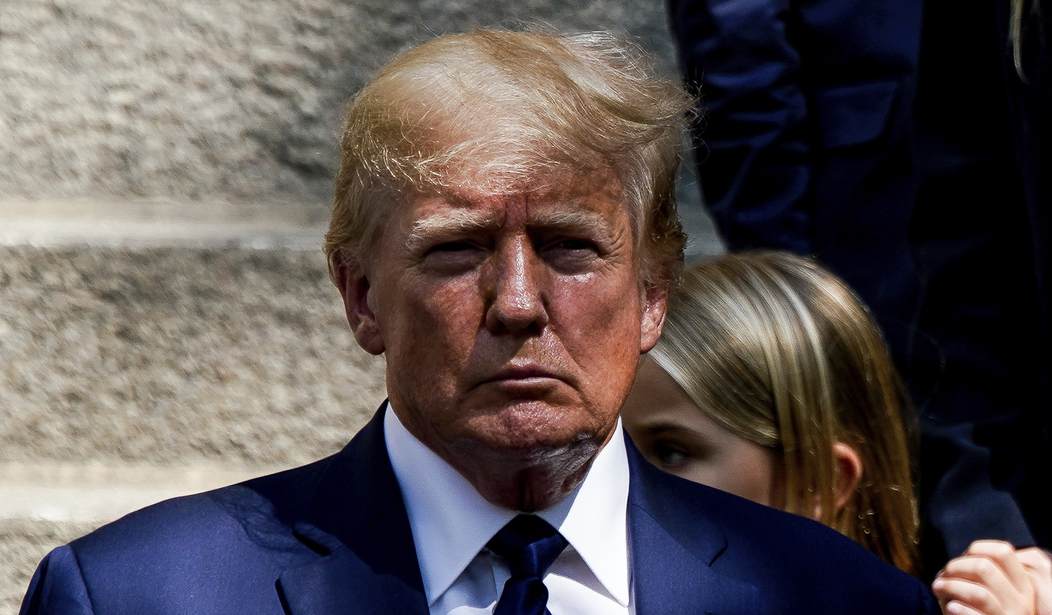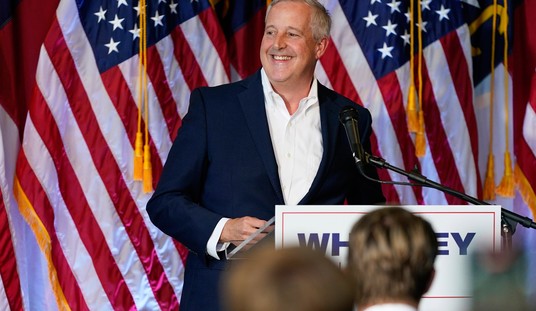As if the controversy over the FBI’s decision to search the home of former President Donald Trump wasn’t already fraught enough, there are other issues at play. Now that the warrant is out in the open for all to see, the conversation has shifted from the Presidential Records Act to whether Trump violated the Espionage Act.
However, there is another sticking point here that could make all the difference depending on how it plays out: Whether Trump declassified the documents the FBI seized from his home. It appears this will be a critical component of the former president’s defense and will play a large role in a legal sense, but also politically.
On Friday, President Trump released a statement claiming that all of the documents the agents took from Mar-a-Lago were declassified.
“Number one, it was all declassified,” Trump wrote in the statement. “Number two, they didn’t need to ‘seize’ anything.”
After the warrant allowing agents to search Trump’s home was unsealed, various news outlets published the content of the document, which showed the FBI had found a number of documents that fell along the range of classification categories. Several were considered “top secret,” which is the highest level of classification.
Former Trump administration official Kash Patel told Breitbart News in May that Trump had already declassified the documents stored in his home. “I was there with President Trump when he said ‘We are declassifying this information,’” he said.
“Trump declassified whole sets of materials in anticipation of leaving government that he thought the American public should have the right to read themselves,” Patel added.
“The White House counsel failed to generate the paperwork to change the classification markings, but that doesn’t mean the information wasn’t declassified,” the former official explained. “I was there with President Trump when he said ‘We are declassifying this information.’”
In response to an NBC News story published in February noting that the National Archives and Records Administration (NARA) found items “marked as classified national security information,” Patel referred to the report as “disinformation.”
He said:
“The story says the National Archives found the documents had classification markings on them. That doesn’t mean that they were not declassified. All previously classified documents have classification markings on them, it shows they used to be classified. It’s petty bureaucracy at its finest, government simpletons not following a president’s orders to have them marked ‘declassified.’ The president has unilateral authority to declassify documents — anything in government. He exercised it here in full.”
President Trump’s office discussed the matter with Just the News on Friday and explained that the documents were declassified under a “standing order.”
The former president’s office explained that Trump routinely declassified documents that he took to Mar- a-Lago, so he could work when he was at home. Just the News reported:
The president’s defense is rooted in the legal principal that the president and vice president are the ultimate declassifying authority of the U.S. government and through executive orders most recently issued in 2003 by George W. Bush and Barack Obama in 2009 that specifically exempt the president and vice president from having to follow the stringent declassification procedures every other federal agency and official must follow.
The very fact that these documents were present at Mar-a-Lago means they couldn’t have been classified,” the former president’s office told Just the News. “As we can all relate to, everyone ends up having to bring home their work from time to time. American presidents are no different. President Trump, in order to prepare for work the next day, often took documents including classified documents from the Oval Office to the residence.”
The statement stressed that Trump “had a standing order that documents removed from the Oval Office and taken into the residence were deemed to be declassified” and that “[t]he power to classify and declassify documents rests solely with the President of the United States.”
A former senior aide told Just the News that he didn’t “know anyone or anything that disputes” the fact that Trump declassified documents he took home with him.
This will be the linchpin on which this entire controversy will turn. If Trump’s lawyers can successfully argue that he declassified the documents, then accusations that he violated the Espionage Act will likely crumble like a house of cards. Politically, the same will happen, and the FBI will be under even more scrutiny. People will ask why the Bureau did not consider this issue before deciding to search his home even as his team was negotiating the return of the rest of the documents.
Of course, this does not mean Democrats and their comrades in the activist media will not try to make this into a bigger issue–even if Trump did declassify the documents. They won’t let a little thing like facts get in the way. But as far as the national conversation is concerned, they will not have much to work with. The only ones who will continue to pretend Trump committed a crime are anti-Trumpers who already want to believe it anyway. But for those who are in the middle, or Trump agnostic, the left’s arguments will not hold much water.
But this does not mean there is no reason for concern. As I’ve contended previously, if the FBI found damaging information in its raid, they may not need to run with the Espionage Act issue. I still believe the true impetus behind the search of Trump’s home is the hope that they might find something related to Jan. 6 that puts the former president’s political future in jeopardy and possibly lead to an indictment. Of course, there could also be details outside of Jan. 6 that they may be seeking to exploit as well. I expect we will know for sure within the coming weeks – or even sooner.














